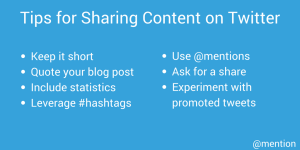 Before you can really polish up your resume, you need to know who you are and where you’re headed. Taking a generic approach not only leaves you with little direction, it can also confuse employers about what you have to offer. They can look at your resume and see diverse skills and experiences but wonder what your goal is and where you fit into their business. That is why it is important to have a strong marketing message that brands you and can help employers better see who you are and what you bring to the table.
Before you can really polish up your resume, you need to know who you are and where you’re headed. Taking a generic approach not only leaves you with little direction, it can also confuse employers about what you have to offer. They can look at your resume and see diverse skills and experiences but wonder what your goal is and where you fit into their business. That is why it is important to have a strong marketing message that brands you and can help employers better see who you are and what you bring to the table.
Get right to the point. Show employers right off the bat what type of role you’re interested in by stating it at the top of your resume and again in your summary of qualifications. You could market yourself as a Senior-Level Marketing Director, a Human Resources Generalist, or a Global Strategic Investment Specialist. Adjust this title depending on the type of position you are applying for and what you are logically capable of. Don’t brand yourself as a senior executive if you’re not quite there in your career yet.
Build on relevant strengths. Now that you know what type of job you’re looking for, what are your strengths in this area? Your summary of qualifications should highlight those skills that employers are looking for in someone in that role. If you’re seeking management positions, how well do you work with and lead others? What are your areas of expertise? How can you benefit the company? However, still leave off anything that sounds like an objective; it’s clear that you want the job you’re applying for. You can talk about why that particular company in an interview.
Align your skills. Tailor your core competencies to the job opening. How do your skills match what the job requires? You could also highlight higher level skills or a few that are slightly more broad to show what other related capabilities you have. Use language that fits with the industry and some of the same terminology that you see in the job opening. These are often terms that a resume scanner will be programmed to identify.
Join professional organizations. If you are focused on a specific industry or type of work, get involved with relevant professional organizations. Not only will these organizations help you stay current and build your skills, they can also be a great way to network and find job openings. List professional affiliations on your resume to demonstrate that you are staying up-to-date in the profession.
Your resume should be a fluid document. Once you have a solid draft, you can then tailor that to different job openings. You won’t be changing everything to make it a completely different document; you’re just making adjustments as necessary for a better fit and to highlight diverse qualities as they align with the job.
(173)






